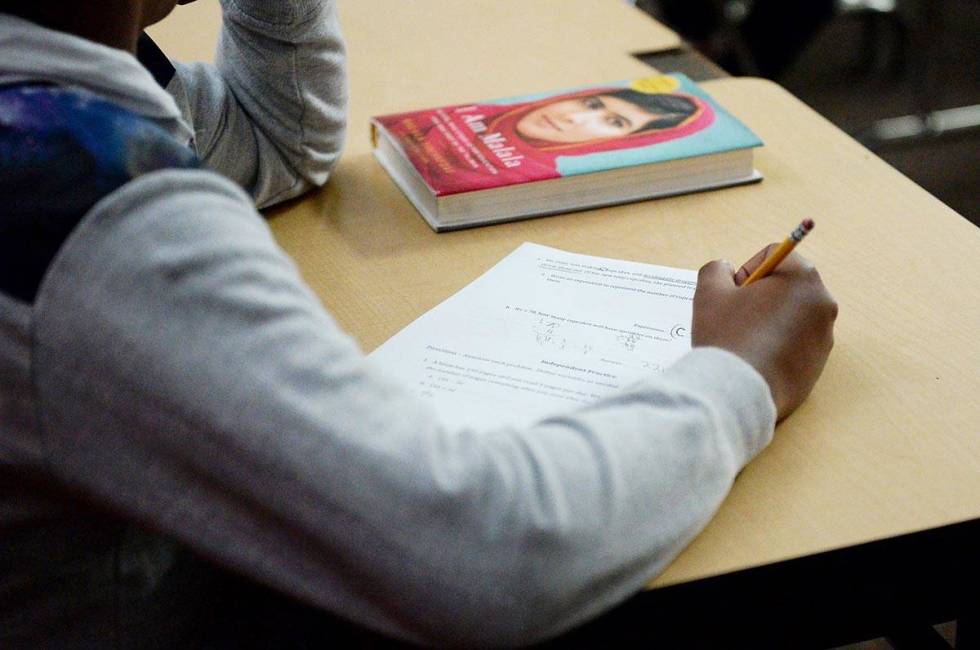COMMENTARY: The Clark County School District needs to set high standards for students

Kudos to the Review-Journal for the Monday editorial, “Don’t water down school district’s grading rules,” which addresses the issue of grade inflation. For more than two decades, I feel as if I’ve been swimming against this tide: I refuse to allow my students to make excuses. I won’t inflate their grades, and I won’t allow them to think that they know material that they don’t know.
I first noticed this issue more than 20 years ago when I was working as a math teacher at a co-ed boarding school in New York. My students told me that one of my colleagues was giving his students 50-point bonus questions about “The Simpsons.” I refused to do that, insisting instead that they learn the material and do the homework. At the end of the year, you can guess whose students had no problem with the state exam.
Then, when I served as a director at an SAT-prep company in the New York City metro area, invariably, a student would ask why taking the SAT was necessary. I would then ask the room of 100-plus students who were taking our initial diagnostic test, “Whose grades average to 90 percent or better?” Virtually every hand went up.
Having spent some time as a substitute teacher at dozens of middle schools and high schools in the Clark County School District a decade ago, I saw multiple teachers literally selling grades for the price of a box of tissues. (It was “extra credit” to bring one in for the class to use.) One student told me that she got an A in geometry because her teacher stood over her and told her what to write on the test.
Just recently, a high school classmate of mine (now a high school math teacher in New York) proudly posted on Facebook that she was offering bonus points on a graded assessment to students who answered, “What is your math teacher going to do this weekend?”
This is not an indictment of all teachers. We all know that a great many teachers do great work, just as we all know that far less than 99 percent of all teachers are “effective” or “highly effective.” But the time has come for the community — parents, all of the good-to-great teachers, administrators, union officials, etc. — to put a stop to this and insist that grades reflect mastery of material. For too long, they simply have not.
Too frequently, I have had to explain to parents who have entrusted me to help their students prepare for the SAT and/or ACT that just because your student has an A in math in no way means that your student knows (or ever knew) the material. As you might imagine, they are shocked to find out that their high school junior has no idea how to deal with percents, cannot find an average, cannot accurately read a bar graph or a table of data and has a middle school-level vocabulary.
Nevada students have an average ACT score of 17. On most scoring tables, students who get just half of the questions correct — which is still an F, mind you — and randomly guess on everything else will get a score at least 5 points higher than that. Much the same goes for the SAT: Getting just half of the questions correct and randomly guessing on everything else would allow students to earn a score above the national average.
It will take some time to achieve that goal. As a first step, parents can start by teaching their kids that tests are nothing to be scared of. If you’ve done the work, tests are simply opportunities to show how much you’ve learned. It probably isn’t the test’s fault that you didn’t score what you were hoping to score. Teachers, in concert with administrators, need to hold firm to appropriate academic and behavioral standards for the good of everyone in class. Retests should be a thing of the past: It’s only common sense that students (especially older ones) will memorize answers to boost their grade, which doesn’t show real learning.
Parents and students should be able to expect that teachers will return homework to students in a timely manner with constructive feedback — not just “marked for completion” — so that students can learn from their mistakes. If implemented at the start of the upcoming school year, these small reforms would represent a first step. But, taken together, it would be a significant first step.
Especially with the massive interruption in learning over the past 15 months, parents need to impress upon students the need to take control of their lives and bring their skills up to par. There are many low-cost or even free online options for this, and I applaud the school district for announcing a plan to use the upcoming summer session to try to help students catch up. I absolutely believe that almost every child in Nevada has the ability to score at least at a “national average” level. Surely, many of them enter the classroom with extra challenges, but that in no way means that they are incapable of learning.
We all want our children to succeed in life. Setting them up for failure by making it appear as if they know way more than they do could not be more counterproductive.
Mike Obstgarten is president of MostPrep, which provides tutoring to Clark County students.